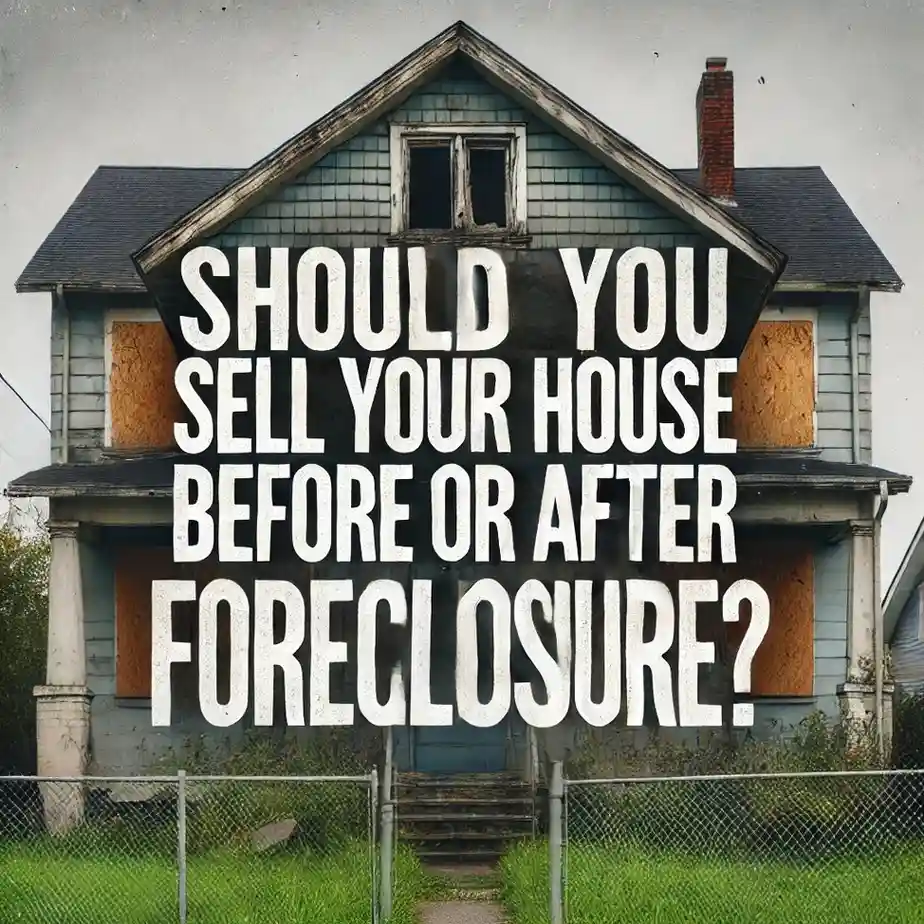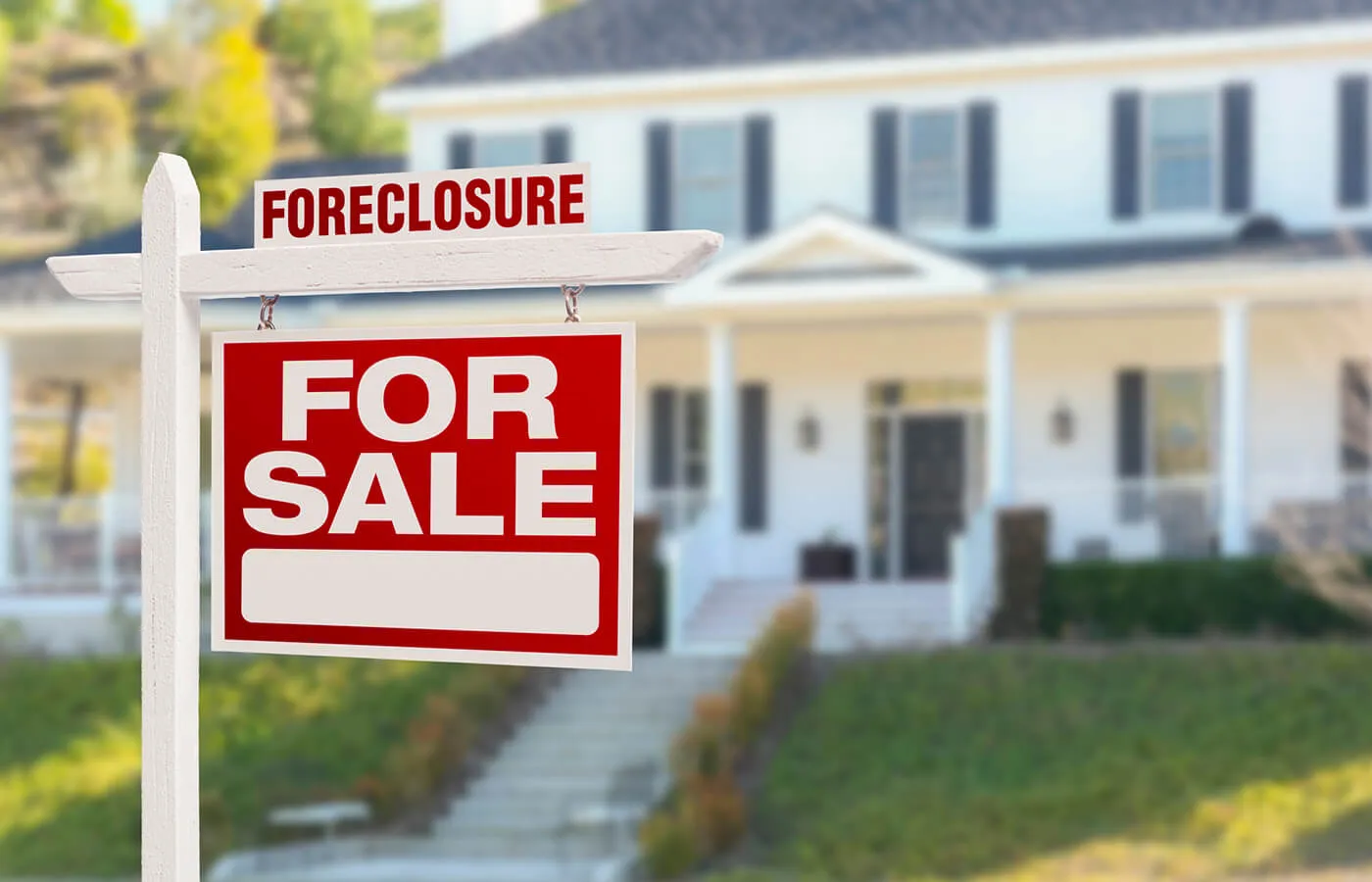
When facing foreclosure, homeowners often find themselves at a crossroads, unsure whether to sell their house before or after the foreclosure process begins. This decision is crucial as it can impact your finances, credit score, and future housing options. Whether you’re looking to avoid foreclosure, reduce the financial strain, or just move on with your life, understanding the pros and cons of each option is essential.
Many distressed property owners struggle with this decision, and the right path often depends on how far along you are in the foreclosure process. From weighing the consequences of letting the house go to auction to leveraging equity before it’s too late, the choice carries long-term implications. Learning about timelines, legal rights, and available alternatives can give you clarity and direction during this high-stress period.
Understanding Foreclosure and Its Process
Foreclosure occurs when you fail to make mortgage payments for a prolonged period, and the lender takes legal action to repossess the property. The foreclosure process can vary in length, depending on the state laws and the lender’s approach. In some cases, it can take several months, but the process often ends in a public auction where the home is sold to recover the unpaid mortgage balance.
The stages of foreclosure usually include a missed payment notice, a notice of default, pre-foreclosure, and then foreclosure sale. Throughout this time, homeowners still have a chance to work with the lender, renegotiate terms, or pursue alternatives such as short sales or loan modifications. However, once the house goes into foreclosure sale or real estate owned (REO) status, your ability to influence the outcome greatly diminishes.
Understanding how long it takes to foreclose on a house can help homeowners act quickly. Every missed month increases the risk of legal proceedings and limits the number of options available.
Selling Your House Before Foreclosure
Many homeowners opt to sell their home before the foreclosure process begins. This approach allows you to avoid a public foreclosure sale, which can severely damage your credit score. Selling your home before foreclosure enables you to negotiate a better price, potentially helping you pay off the mortgage balance and keep your credit intact. Additionally, selling before foreclosure offers you more flexibility in the sale process, allowing you to set a timeline and choose the best offer.
If you act quickly, you may even be able to net cash from the sale, especially if your home has appreciated or you’ve built up equity. Moreover, avoiding the stigma of foreclosure makes it easier to transition to a new home or qualify for a rental agreement in the future. Working with professionals who specialize in pre-foreclosure home sales can help streamline the process and improve outcomes.
Pros of Selling Before Foreclosure
Selling your house before foreclosure offers several advantages. First, it gives you control over the sale price, whereas a foreclosure sale may result in the home being sold for less than its market value. Second, selling early allows you to avoid the negative impact on your credit score that comes with a foreclosure. Foreclosures stay on your credit report for up to seven years, making it harder to secure future loans or even rent an apartment. Lastly, a timely sale can help you preserve some equity in your home, as opposed to the possibility of a foreclosure auction where you might not get enough to cover the debt.
In addition to these advantages, selling before foreclosure gives homeowners peace of mind. The stress of dealing with legal notices and constant communication from lenders can take a toll on your emotional and mental health. By selling early, you regain some control and stability in your financial situation.
Cons of Selling Before Foreclosure
While selling your house before foreclosure offers several benefits, it may not be the right choice for everyone. The process of selling your home can be time-consuming, especially if you’re trying to sell quickly. If the market is slow or you owe more than your home is worth, you might not be able to sell the property at all. Additionally, some homeowners may feel overwhelmed by the pressure of finding a buyer before the foreclosure proceedings start, potentially leading to a rushed decision that could result in a less-than-ideal sale.
Selling quickly also requires you to be flexible with pricing and may result in accepting a lower offer just to avoid foreclosure. You may also encounter buyers who take advantage of your urgency, further complicating the process. If your mortgage is underwater, you’ll likely need lender approval for a short sale, which can slow things down or even derail your plans altogether.
Selling Your House During or After Foreclosure
If you miss the opportunity to sell before the foreclosure process begins, you may still have options during or after foreclosure. If you are still in the pre-foreclosure stage, you may be able to negotiate a short sale with the lender, where the property is sold for less than the amount owed on the mortgage. While this can help mitigate some financial loss, it still negatively affects your credit score.
Once the house goes to auction, your chances of profiting from the sale are extremely low. The lender typically sets a reserve price, and if the property doesn’t sell at auction, it becomes bank-owned. At this point, you lose ownership and have no legal claim to any sale proceeds. However, in some states, there is a redemption period during which you may be able to reclaim your property by paying the full debt plus additional fees.
In rare cases, homeowners may be offered a cash-for-keys agreement after foreclosure, where the bank pays the previous owner to vacate the property peacefully. While this doesn’t recover lost equity, it can give you some financial assistance for relocation.
Key Considerations Before Making a Decision
Timing is everything when deciding whether to sell before or after foreclosure. The earlier you act, the more options you have available. Financial distress may tempt you to ignore the problem, but doing so only limits your ability to make a smart move. By acknowledging the situation early, homeowners can create a plan that preserves equity, reduces stress, and safeguards credit.
Other important factors to consider include the current real estate market, your home’s condition, and how much equity you have. If you live in a seller’s market, you might be able to sell quickly for a fair price. On the other hand, in a buyer’s market, you may have to make concessions to avoid foreclosure.
Getting a professional appraisal or working with a real estate investor who buys homes in any condition can also be beneficial. For homeowners who want a fast sale with minimal effort, working with a direct buyer can eliminate the need for repairs, inspections, and listing fees. To explore such an option, consider reaching out through this
Is a Short Sale Better Than Foreclosure?
A short sale is often viewed as a better alternative to foreclosure. Though it still affects your credit, the impact is generally less severe than a completed foreclosure. With a short sale, you may also avoid legal action and lingering debt. However, short sales can be complicated and require lender approval, which can delay the process.
Lenders may ask for documentation to prove financial hardship, and there’s no guarantee they will accept the short sale offer. Even if approved, the process can take months and doesn’t always relieve the borrower of the remaining balance unless explicitly agreed upon.
Can You Sell Your Home After Foreclosure?
Technically, once the foreclosure is complete and the home is sold at auction or becomes REO, you no longer own the property and cannot sell it. However, if the foreclosure has not been finalized and you’re in a redemption period, you might still be able to reclaim and sell it. These situations are rare and often involve complex legal steps, so professional advice is strongly recommended.
Alternative Solutions to Avoid Foreclosure
In addition to selling your home, there are other options that could help you avoid foreclosure. Loan modifications, refinancing, government relief programs, and forbearance agreements may allow you to keep your home or at least delay foreclosure while you get your finances in order. Some homeowners even consider renting out part of the property or exploring deed-in-lieu options to transfer ownership back to the lender without a full foreclosure.
While these alternatives are not solutions for everyone, they are worth exploring early in the process. Ignoring the situation often leads to fewer options and more severe consequences.
Making the Best Decision for Your Situation
Selling your home before foreclosure generally provides more control, better financial outcomes, and less damage to your credit. Waiting until after foreclosure leaves you with fewer options and more severe long-term effects. While not every homeowner will be able to avoid foreclosure, understanding the process and acting quickly can help you make the best out of a difficult situation.
Whether you’re considering a pre-foreclosure sale, exploring short sale opportunities, or hoping for a last-minute solution, it’s essential to stay informed and proactive. Real estate professionals, foreclosure experts, and home buying services can all offer insights and fast-track your decision-making. In a time where every day counts, taking the first step can be the difference between a new beginning and long-term financial hardship.





